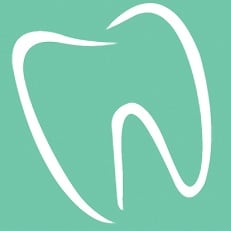
Dentures
Dentures are available as either full or partial dentures and are used to replace a missing tooth or teeth. They usually require multiple stages to design and fit correctly.
Before they can be created and fitted, the dentist will need to assess your gums and any remaining teeth, as well as complete any dental work required on existing teeth.
Stages include taking impressions (moulds) of your gums and existing teeth, and fitting and adjusting your new dentures.
Benefits of dentures
- Help you bite and chew food more easily
- Allow you to eat a wide range of foods
- Reduce speech difficulties caused by missing teeth and gaps
- Offer protection for any remaining teeth
- Improve your facial aesthetics
- Prevent your lip and facial muscles from sagging
- Are removable for easy cleaning
- An affordable option to replace multiple missing teeth
- Easy to adjust when required due to bone loss or aging
Partial dentures
These are used to replace one tooth or a small group of missing teeth. Fully removable, they consist of a replacement tooth or teeth on a plastic pink coloured base. It uses a wire framework which attaches to the teeth on either side of the gap, to help position and hold it within your mouth.
Full dentures
Full dentures or false teeth as they are commonly known, are a complete set of removable teeth. There are two kinds; conventional and immediate. Conventional dentures are fitted several weeks after your teeth have been removed, when your gums are fully healed. Immediate dentures are fitted immediately after your teeth have been removed, but must be refitted again, several weeks after your mouth has healed.
Taking care of your dentures
Like teeth, they need daily cleaning to remain in great condition.
- Brush them twice daily with hand soap and a soft toothbrush to remove any food deposits
- Also, brush your tongue, gums, and palate each day to stimulate tissue circulation and remove plaque.
- When not in use, leave them in a safe place away from children and pets, preferably in a small, dry storage container
- Avoid hard foods that could potentially chip them
- Handle dentures over a soft towel to prevent damage if dropped
FAQs
What are dentures?
They are a metal or plastic framework which holds one or more artificial teeth. They are used to replace missing teeth due to injuries, poor gum health, severe decay or infections.
What are they made of?
They can be made of two different materials. Partial dentures can be made of acrylic (plastic) or chrome (metal). Full dentures are almost always made of acrylic material to suction onto the gum, which metal cannot do. There are pros and cons to each material used, your dentist will help you find the best option to fit your needs and budget.
How much do dentures cost?
They are one of the most affordable tooth replacement options. The cost varies depending on the size, complexity and the number of fittings required.
Are they comfortable to wear?
They do take a few weeks or even months to get used to wearing. To achieve a comfortable fit, several adjustments may be necessary. An annual check-up is recommended to ensure they remain well fitting.
Do dentures need replacing?
They are a great replacement for natural teeth and have a lifespan of around five to seven years. This is because as your jawbone and mouth change shape, your old ones will not fit as well as they used to.
What’s next?
Get in touch so that we can help you get the best solution for your specific needs.
Herald Avenue Dental Centre
7 Herald Avenue, Willetton 6155
For appointments, information or dental emergencies:






